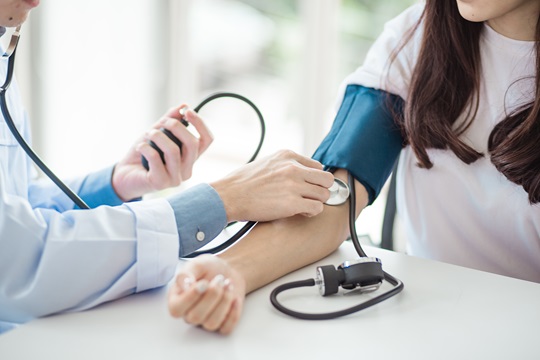“We treat the patient, not the number.” Treatment of hypertension is individualized based on your age, medical history, and other risk factors.
Treating hypertension reduces risk of heart attack, stroke, and congestive heart failure
All patients with hypertension are recommended lifestyle measures:
- Low salt diet (<2000 mg/day), such as the DASH diet
- Lose excess weight
- Exercise
- Limit alcohol intake
- Stress management
- Potassium supplementation in the diet (unless contraindicated by the presence of chronic kidney disease)
- Various medications help lower blood pressure, including ACE inhibitors, ARBs, beta-blockers, and calcium channel blockers, among others.

